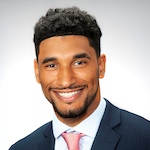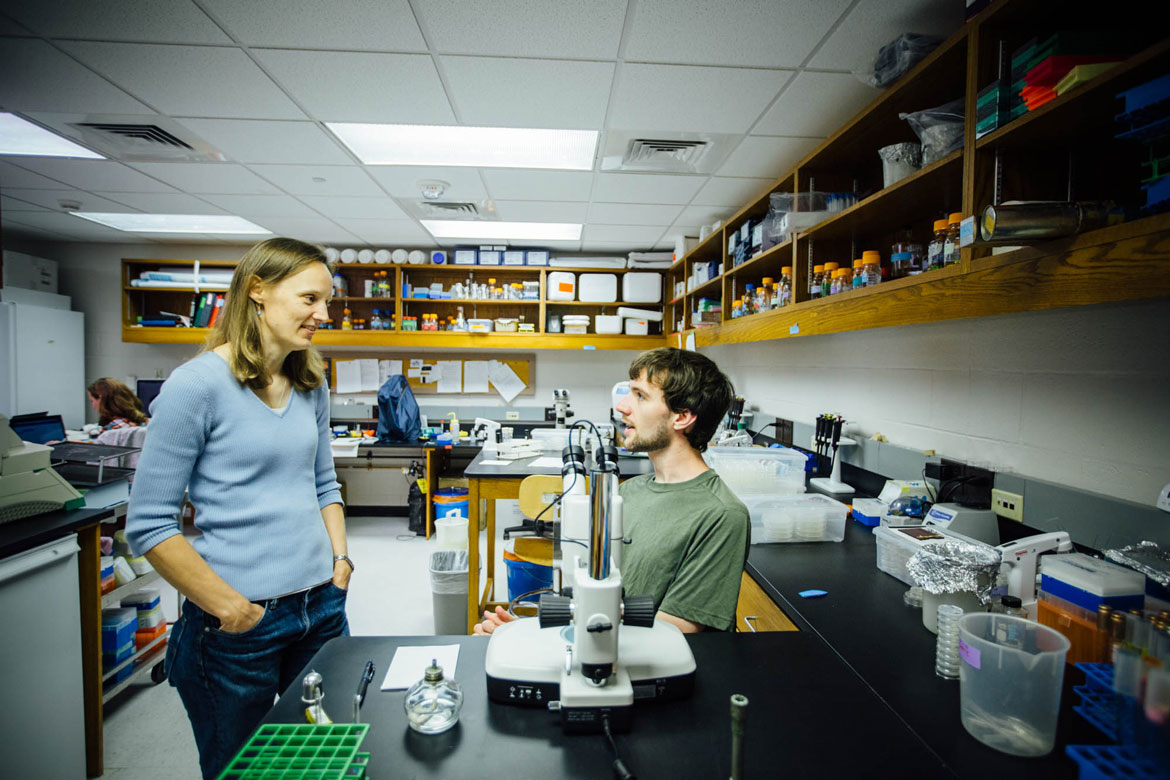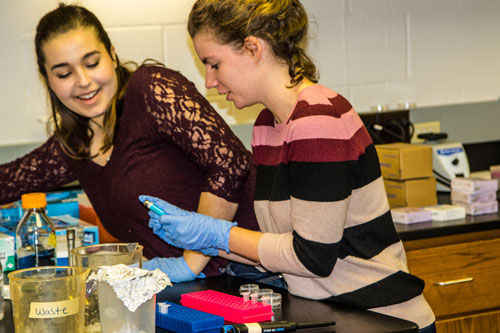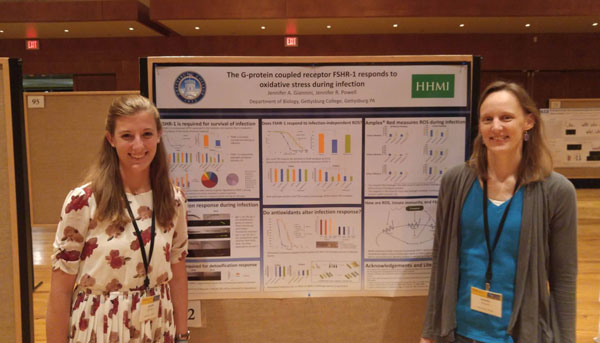

Biology Prof. Jen Powell doesn’t know the answers to the questions her students ask.
(And that’s a good thing.)
About three years ago, Powell, with the help of lab instructor Pamela Castle, transformed her genetics course from a traditional lab into an undergraduate research experience. Mirroring Powell’s own research, as part of the class students use a small non-parasitic “worm,” C. elegans, to study the innate immune system. How does C. elegans detect the presence of pathogenic bacteria? How does it fight off infection? Every year, each group of students creates their own set of questions designed to tackle a corner of work that, when pieced together as a body of research, can start to answer those bigger questions.
“They’re asking questions that are of interest to the broader scientific community,” said Powell. “I don’t know the answer to the questions, and no one in the world knows the answer to the questions—it’s taking inquiry-based learning to a whole new level.”
Powell doesn’t know the answers because they don’t yet exist. It’s a scientist’s job to conduct research to find the answers, so that’s what she asks her students to do. So far, they’ve tested over 1500 genes and discovered 12 new genes that have roles in regulating the immune system.
“[It’s important] that students take responsibility for their own experiences,” said Powell. “The first couple of times [they do an experiment], they screw up spectacularly,” she joked, “but that’s how you learn. I build in that flexibility to make sure they have time to make those colossal mistakes because that’s how you learn. They always rise to the occasion.”
 Leah Gulyas ’19, a biology major who took Powell’s genetics class and is now a member of her research lab, said she appreciates having the time and space to work through experiments on her own.
Leah Gulyas ’19, a biology major who took Powell’s genetics class and is now a member of her research lab, said she appreciates having the time and space to work through experiments on her own.
“In both my research and academic experience, [Prof. Powell] maintains a very good balance of mentoring and letting you work through things yourself, which continues to help me develop an appropriate amount of independence and confidence in conducting research,” she said.
In addition to the genetics course, Powell teaches microbiology and provides an apprenticeship opportunity for students who are interested in completing a longer-term research experience. Combined, Powell has mentored over 100 students and alumni who have gone on to pursue their Ph.D., attend medical school, and enter a variety of scientific fields.
For example, Joe Robinson ’15, who published a paper as an undergraduate under Powell’s mentorship, is pursuing a Ph.D. at the University of California, Berkeley. (In keeping with Powell’s mantra to make room for mess-ups, Robinson’s research breakthrough followed a failed experiment.) Robinson is continuing his work with C. elegans in a new line of research: investigating their regulation of meiosis.
“Jennifer is basically the reason I am in grad school right now. I was extraordinarily lucky to join her lab as a freshman, and continued working there practically nonstop until I arrived at Berkeley,” said Robinson. “Because of her mentorship, I learned a large number of skills that have prepared me extremely well for my graduate studies, including experimental techniques, reading papers, and even just keeping a lab notebook. Also, my work during my spring and summer senior years was basically a crash course in how to be a grad student, including going through the process of the first pilot experiment to published paper in one year. Even now, I still ask her for advice on lab work and grad school in general.”
 Powell said her goal—whether it’s in her lab or in the classroom—is to provide students with an experience that prepares them for graduate school and the work they can expect to engage in as scientists in the real world. To get to that point is a gradual process, but it starts with designing experiments, interpreting and presenting data, and thinking critically about research.
Powell said her goal—whether it’s in her lab or in the classroom—is to provide students with an experience that prepares them for graduate school and the work they can expect to engage in as scientists in the real world. To get to that point is a gradual process, but it starts with designing experiments, interpreting and presenting data, and thinking critically about research.
“My goal is for my students to already be doing [those things] by the time they leave [Gettysburg],” said Powell. “I hold them to a high bar. But Gettysburg students are amazing, and they get there when they are given these opportunities.”


